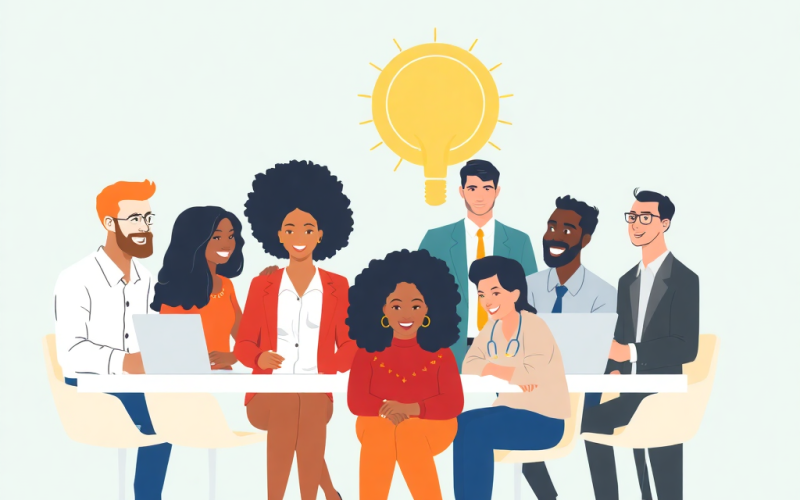The Importance of Diversity and Inclusion in the Workplace

In the last few years, workplaces have transformed to be incredibly more diverse than they have ever been in the past.
By definition, diversity refers to people from various backgrounds, cultures, genders, ages, and abilities. On the other hand, inclusion ensures that everyone feels important, honored, and accepted regardless of their background.
The Importance Of Diversity And Inclusion in the Workplace
1. Enhancing Creativity and Innovation
Just picture this scenario; A problem needs to be solved, and different individuals, with different views get together to brainstorm for it. One individual views the issue from an engineer’s perspective, while another sees it as a marketer. When a marketing team incorporates this diversity, they can develop multicultural and expansive campaigns.
2.Decision-Making is More Effective
In comparison to teams that have non-diverse members, diverse teams tend to outperform them. At first, a Harvard Business Review estimated that teams who are comprised of individuals from diverse backgrounds, particularly of diverse genders, were 87% more effective when making decisions. For a team to be fully effective, each and every member’s opinion should be taken into account.
3.Loyal and Engaged Employees
When an employee feels that their work is valued, they feel more satisfied with their job. Better yet, they are more inclined to complete tasks that relate to their job, and substantially increase their productivity. The best thing about an inclusive culture is that it fosters a sense of belonging.
4.Bringing the Best Onboard and Retaining them
Companies actively promote D&I as it is often the first choice for most job seekers. People tend to prefer working in places where they feel represented and respected. Customers and clients also prefer to work with companies that tend to promote fairness and equality.
Naturally, cultivating a culture that is rich in diversity and inclusion is a complex task. And one of these challenges is unconscious bias - the innate bias in all human beings to favor a few people who they like in any context. This can result in people making preferences in terms of employment opportunities and employment relationships.
Conclusion
Diversity and inclusion are not optional, but it is becoming critical in order to survive and thrive in the developed workplace. Organizations must embrace diversity in ideas and let all employees feel a sense of belonging, to achieve this.
Check out how you can manage your time well at work here.
- Share This Job



Write A Comment
No Comments